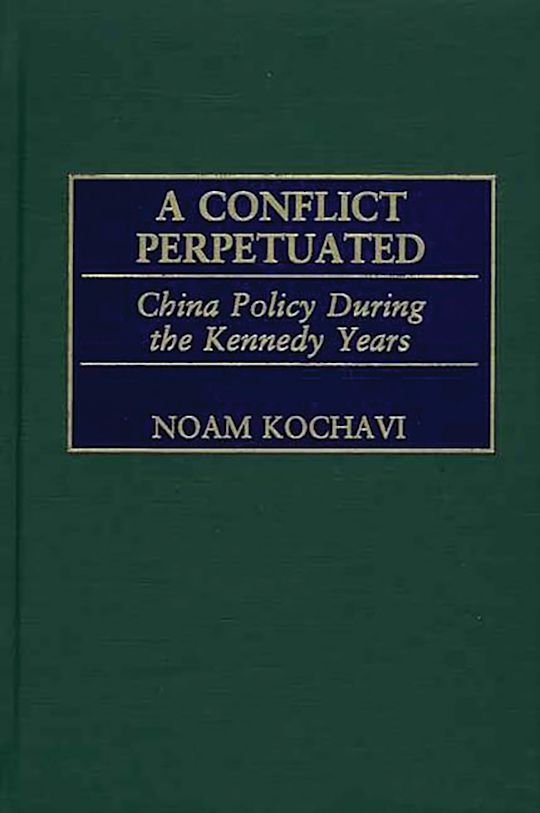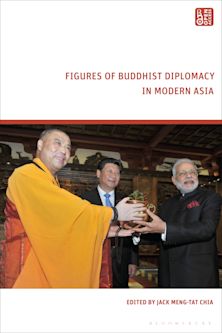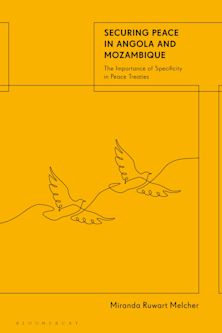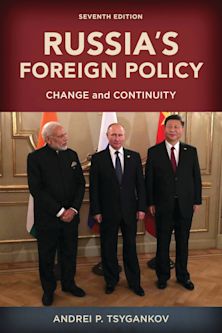- Home
- ACADEMIC
- Politics & International Relations
- Foreign Policy and Diplomacy
- A Conflict Perpetuated
A Conflict Perpetuated
China Policy During the Kennedy Years
A Conflict Perpetuated
China Policy During the Kennedy Years
You must sign in to add this item to your wishlist. Please sign in or create an account
Description
The first comprehensive account of China policy during the Kennedy years, this study profiles John F. Kennedy as a man whose inner struggles and disparate characteristics made for an unpredictable foreign policy. While he was often a hostage to the Cold War, to constrictive perceptions of the domestic climate, and to the image of a predatory China, Kennedy recognized Washington's finite capacity to shape events on the China Mainland. With the possible exception of a preventive strike against China's nuclear installations, he was also reluctant to run the risk of a military confrontation with Beijing. On the eve of his assassination, Kennedy may have even contemplated a China policy departure during his second term.
A calm appraisal of China's capabilities and intentions constituted the distinguishing feature of revisionist thinking during the Kennedy years. The disjointed revisionist effort settled, in late 1963, on a pedagogic course, which still implied a search for American primacy. The revisionist approach did ultimately facilitate the transformation of bilateral relations in the early 1970s. From a shorter-range perspective, however, the Kennedy era only added fuel to the fire of Sino-American confrontation. The Limited Test Ban Treaty accentuated the sense of encirclement and vulnerability in Beijing's psyche, and clouds gathered ominously over Vietnam. Kennedy does bear some responsibility for the bilateral impasse, as he personified a decisionmaker so obsessed with the objective of deterrence as to overlook the security dilemma: nonetheless, Mao's preference for a radical course, independent of Kennedy's conduct, contributed as well. Neither side was yet ready for a breakthrough.
Table of Contents
The Eisenhower Legacy: Consequential Brinkmanship
The Kennedy Team's China Prism Prior to the Assumption of Power
1961's Emerging Patterns: Stillborn Initiatives, Linkage Politics, and Alliance Politics
Mist Across the Bamboo Curtain: Washington's View of China's Internal Crisis, 1961-1962
The Sino-Indian War and the Failure of the "New Pacific Community"
Chinese Shadows, Korean Ghosts, and Entanglment in Southeast Asia
From Puzzled Prudence to Bold Experimentation: The Sino-Soviet Split and the Strategic Triangle
Fork in the Road: Between a Surgical Strike and a Conditional "Containment Without Isolation"
Summary and Conclusion
Bibliography
Product details
| Published | Jan 30 2002 |
|---|---|
| Format | Ebook (PDF) |
| Edition | 1st |
| Extent | 320 |
| ISBN | 9780313010729 |
| Imprint | Praeger |
| Series | International History |
| Publisher | Bloomsbury Publishing |
About the contributors
Reviews
-
[T]here is no other comprehensive treatment of Kennedy's China policy, Kochavi's is a welome addition. It covers Kennedy's thinking and leadership style, probes his team's handling of the China policy within international and domestic contexts, and offers a succinct, multi-level appraisal of his administration's performance and policy. . . . [T]his study illuminates our understanding of US-China policy and the decision making process of the Kennedy administration. It shows that the New Frontiersmen of Camelot were not always at their best and brightest, at least when it came to formulating a new, effective China policy in the Cold War years.
Journal of Third World Studies
-
This first book-length analysis of John F. Kennedy's China policy is a timely and judicious contribution to the literature.
Journal of American History
-
[T]his is a very useful book, one which does an excellent job of summarizing the existing literature as written by American and British specialists. . . . Kochavi has, at the same time, uncovered fresh materials from the archival records, managing to advance just a little the struggle to open the vaults at the John F. Kennedy Library for serious analysis and evaluation. . . . [A] highly readable book.
The Journal of Asian Studies

ONLINE RESOURCES
Bloomsbury Collections
This book is available on Bloomsbury Collections where your library has access.



































